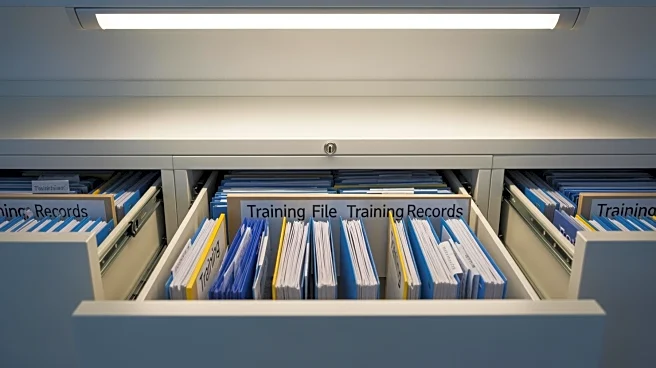What's Happening?
Governor Gavin Newsom has signed Senate Bill (SB) 513, amending California's Labor Code section 1198.5. This amendment expands the personnel records that employers must make available to current and former
employees for inspection, now including education and training records. The new law, effective January 1, 2026, requires employers to provide detailed information about training sessions, including the employee's name, trainer's name, date and duration of training, core competencies addressed, and any resulting certification or qualification.
Why It's Important?
The expansion of personnel file access to include training records is significant for both employees and employers in California. For employees, it enhances transparency and allows them to verify their training and qualifications, which can be crucial for career advancement and resolving disputes. For employers, it necessitates meticulous record-keeping and compliance with the new requirements to avoid penalties. This change reflects a broader trend towards increased employee rights and transparency in the workplace, potentially influencing labor policies in other states.
What's Next?
Employers in California will need to update their record-keeping practices to comply with the new law by January 2026. This may involve revising internal policies and training staff on the new requirements. Employers should also prepare for potential inspections and requests from employees seeking access to their training records. The implementation of SB 513 may prompt discussions on further expanding employee rights and transparency in other areas of labor law.
Beyond the Headlines
The amendment to California's Labor Code highlights the ethical considerations of employee rights and transparency in the workplace. It may lead to long-term shifts in how employers manage personnel records, influencing broader labor policy trends. This development underscores the importance of balancing employer obligations with employee rights, potentially setting a precedent for similar legislative changes in other jurisdictions.










